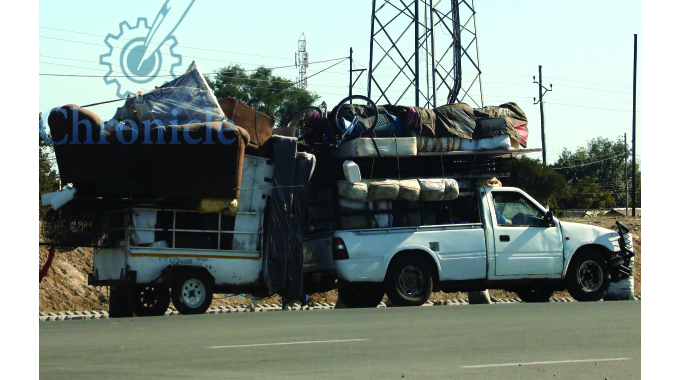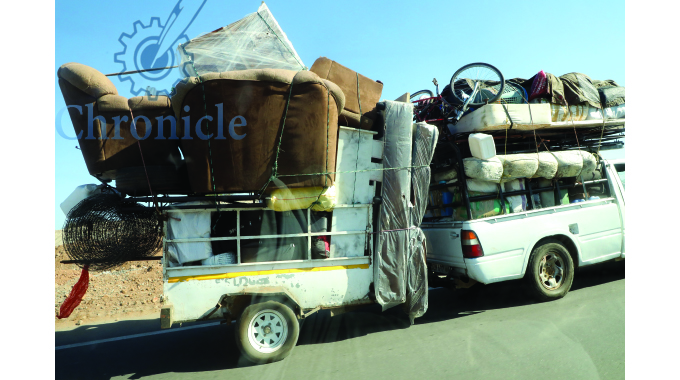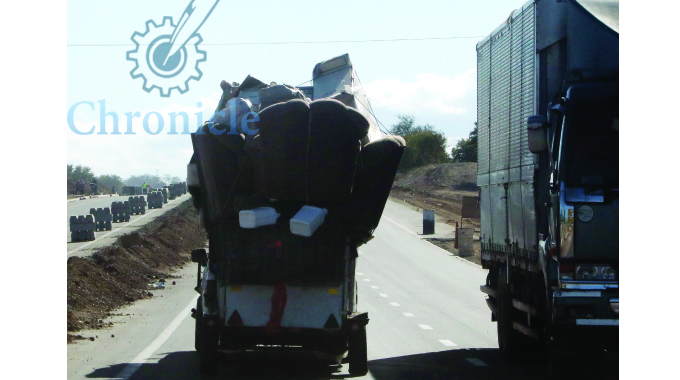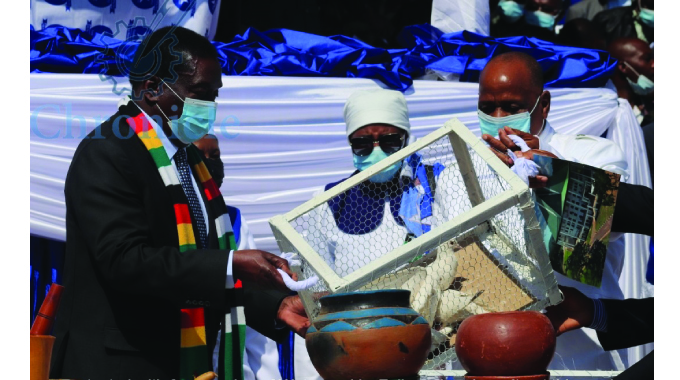Omalayitsha: Matebeleland’s unsung heroes

Nqobile Tshili, Chronicle Reporter
OMALAYITSHA (cross border transporters) are among the unsung heroes to most communities particularly in Matabeleland region where most families have relatives based in South Africa who send them money and groceries.
Before the widespread use of cellphone technology, omalayitsha were also a key communication connection between diaspora-based citizens and their relatives back home.
They did not just bring goods but also carried important messages between distant relatives.
During the country’s economic hyperinflationary environment around 2008, omalayitsha brought smiles to many families as they brought basic commodities which were no longer available in local shops.

They transport groceries, building materials among other things and also come handy especially when a Zimbabwean based in South Africa dies in the neighbouring country without a funeral policy.
It is also said that they are key in transporting medication for South Africa-based Zimbabweans living with HIV as relatives in the country get medicine from local clinics before sending it across the border.
While there are several luxury coaches plying the Zimbabwe-South Africa routes, some citizens have resigned themselves to travelling using omalayitsha.
This is mainly because cross-border transporters drop them off at the doorstop of their homes.
Omalayitsha have gained a reputation of carrying abnormal loads which in some instances, leave spectators wondering how they are doing it.
A Chronicle news crew yesterday spoke to several cross-border transporters who shared their experiences with some of them saying they have been in the trade for 20 years.
Mr Bekezelani Tshongwe (38) said he started operating as a cross border trader in 2002 and has watched it evolve.
While cross border transporters are now driving vehicles such as Toyota GD6, Toyota Quantum, some of them started by having cars such as the Peugeot 504.
Mr Tshongwe said most cross-border traders ply the route which leads to their rural home.
“I come from KoNkosikazi, in Siganda, Bubi District in Matabeleland North so my orders include those of people from my home area. But we do transport goods across the country. If I get orders from Harare or any part of the country, I carry those goods if I think it would be viable for me to do so. But I make sure that my first destination is my home area, although I would have passed through Bulawayo” said Mr Tshongwe.
He said the cross-border transporting business has come in handy for so many people in the community.
Mr Tshongwe said they have ensured communities are food secure through support from their South Africa-based relatives.
“I remember during the 2008 period we assisted a lot of families in bringing food to the country when there were shortages in the country. But to be in this business for as long as I have been, one needs to be honest and patient at the same time.
Honesty is what clients want and without being so, there is no way you can sustain this business this long,” said Mr Tshongwe.
He said he is moving towards professionalising courier services and has registered a company in South Africa named Giyaz Logistics.
Mr Tshongwe said he is in the process of registering the company locally as he wants to attract bigger contracts.
He said he now has a Toyota GD6 which he alternates with Toyota Quantum for courier services but when he gets bigger clients he uses an 8 tonne truck.
“But we face a lot of challenges on the road, for instance, when we get involved in accidents especially on the Zimbabwean side, there are delays to respond to accidents.

“This has cost some people lives. For instance, there are no ambulance services between Beitbridge and Gwanda which is a serious challenge for us as some accidents lead to deaths when people could have been saved,” he said.
Mr Tshongwe said online shops were also eating into their business while fuel increases have had an impact on their operations.
Another cross-border operator Mr Molen House said he accidentally became an umalayitsha in 2008 when he lost his job in South Africa.
“I started offering services just for a few friends after I told them that I was coming home and they requested that I bring them their stuff.
I repeated the exercise over a few occasions and realised that I could earn a living through being a cross border transporter, so I’ve stuck to this since then,” said Mr House.
“While I’ve been able to provide for my family, I also realised that this service benefits a lot of people that we serve. We bring groceries, money and everything that our clients require from us.”
He said the business is no longer as lucrative as it was in the past as there are more players in the sector.
Mr House said the advent of online shopping has also impacted negatively on their business.
Traditional leaders commended omalayitsha for the services they provide to communities.
Chief Masendu from Bulilima who is also the provincial chairperson of the National Council of Chiefs in Matabeleland South and a Senator said omalayitsha were among the community heroes as their services make a difference in communities.
“We applaud omalayitsha for the services that they are providing particularly for most homes in Matabeleland South province. They bring food, money which sustains families.
They are a conduit of development.
“Our people in South Africa and Botswana buy building materials in the neighbouring countries and the material is brought by omalayitsha. So, they are bringing development to our communities,” said Chief Masendu.
He said most of the cross border traders have expressed concerns over corruption at the border and on highways saying this negatively impacts on the services they provide. — @nqotshili










Comments